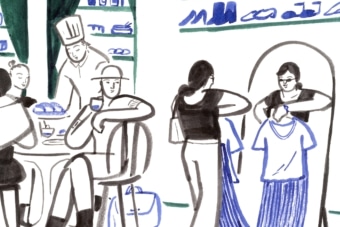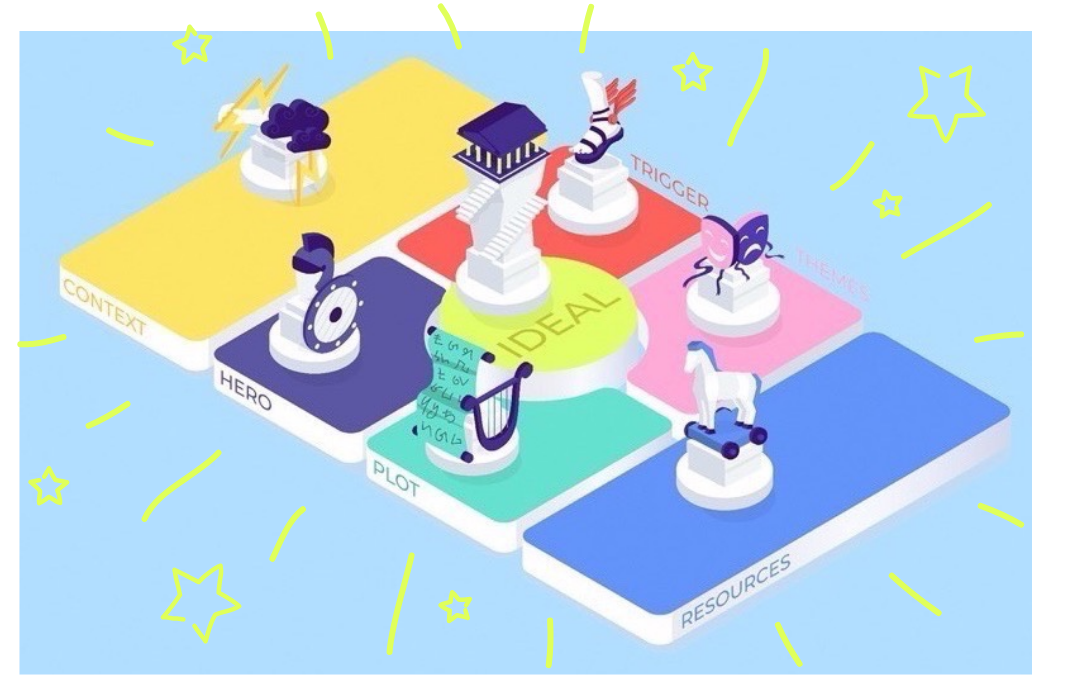No matter what kind of hotel you open, you need a website that showcases your personality as a hotel and a company. A website that allows you to stand out amongst a sea of competitors and, most importantly, drive sales.
After successfully winning over banks and investors, navigating planning permissions, repositioning your property, meticulously fine-tuning every detail and training your team, the time has come to market your brand new hotel. And to do that, you need a website.
Unfortunately, we see many hoteliers underestimate the power of a well-designed website to grow their business, and end up with fewer direct sales, lower perceived value and lower conversion rates than they could have.
After spending so much money renovating or building your hotel, you want your website to be an asset, not a liability. To make sure you are set up for success when planning your new hotel website, we have compiled the top 5 mistakes hotels make when creating their websites, along with practical tips on how to avoid them.
Mistake n°1: Thinking of your website as an online brochure
Every journalist, potential client and partner will visit your website to find out ‘who you are’. All your communications will eventually lead to your website – whether you issue a press release or post something on the hotel’s social media. Even if your customers book through booking platforms, they are likely to visit your website. Either to see the breakfast menu, for example, or to see more photos of the facilities. Your website is therefore your number one communication channel to showcase your unique concept and brand. This means that your website should not just be seen as a digital brochure, but as a digital headquarters that reflects the physical essence of your establishment. Your website must not only provide static facts about your hotel, but also cater to different visitor profiles, with different entry points, looking for different information, and at different stages of the sales funnel (some people are just browsing, while others are looking for specifics to make a booking decision).
Key takeaway: Your website is your number one communication channel with multiple audiences and interests, so it cannot be designed like a static sales brochure.
Mistake n°2: Thinking you are just selling rooms
Customers make booking decisions based on digital information, not the physical reality of a hotel. This in essence means that you are not selling rooms, you are selling images of those rooms. This makes you as much in the e-commerce business as you are in the hospitality business. This means that the difference between a web browsing session and a successful sale depends on stunning visuals, engaging copy and timely calls to action (CTAs). Your website is like an extension (or complement) of your sales team, working 24/7. Consider using chatbots, or at least FAQs, to answer your prospects’ burning questions, from the availability of a projector in your banquet hall to your pet policy over the weekend. For example, we set up an FAQ page for FlexOffice, a Swiss workspace membership company, to answer common queries and reduce repetitive work for their sales team.
Key takeaway: Hotels have become de facto e-commerce businesses. As a hotelier, make sure your website serves as an informative, persuasive and conversion-driven platform that seamlessly complements your sales team.
Mistake n°3: Not tapping into the customer’s online visit
It often takes visitors several visits before they make a decision (such as booking). Every visit is an opportunity to capture data and engage with them. But don’t just think of a pop-up saying “Subscribe to our newsletter”, you’ve got to offer real value to capture the interest of your visitors. Nuage, a slow luxury hotel in Paris, for example, offers a slow luxury guide of Paris. They offer unique propositions that will attract potential subscribers and therefore customers, all while targeting your target demographic. Your potential subscribers are looking for genuine value beyond getting 10% off their first booking, but instead, something that will lead them to engage emotionally with the hotel.
Key takeaway: Invest in smart content to draw in new potential customers and subscribers. They will be more tempted to sign up, and therefore you have captured not only their attention, but their data as well.
Mistake n°4: Limiting SEO to keywords
Intelligent website structuring, high-quality visual and textual content, and mobile design usability are all crucial factors considered by Google when indexing and ranking pages, and will help establish your hotel’s authority score and position it as a preferred destination. Instead of scattering generic keywords like “Paris, hotel, opera, Eiffel Tower,” focus on niche topics or key themes that are overlooked by your competitors. By building themes or emphasising specific geographical areas (such as everything about the Montmartre area, jogging routes, ideal benches for reading, or proposal spots), you can create a unique identity and establish your hotel as a local icon. This approach was successfully implemented for the Terrass Hotel, where our goal was to position the hotel as “a Montmartre icon”.
Key takeaway: To elevate your ranking on targeted keywords, carve out a niche that establishes your authority. Steer clear of cookie-cutter templates that can significantly impede the optimal user experience (UX) for your (unique) property.
Mistake n°5: Underestimating the talents needed for your website
Picture yourself entering a hotel lobby. Smiling bell boys, eye-catching interior, pleasant music, fresh smelling flowers, uncrowded reception desks…Many expertises, from interior design, to customer service, all the way to flower arrangement, are needed to create a compelling experience. Websites are no different. To create a successful digital experience for your hotel, you will need the help of many specialists. From UX designers, screen (or UI) designers, copywriters, interior photographers, lifestyle photographers, motion designers. The temptation to use ready-made website templates (purchased online or sold by an agency) to decrease costs can be big. But resist. Templates are designed to look good but will do little to actually sell your property. A bit like a beautifully designed car lacking an engine, onboard navigation, and (crucially) after sales services. Templates are, by definition, standard and will automatically wash down what makes your hotel unique, making your hotel look generic. You would not dream to “copy-paste” the lobby experience of your main competitor. So why would you do it for your website?
Key takeaway: Creating and maintaining a performing website is not a one-man job. Make sure to hire an agency that can bring together sales, design and digital capabilities under one roof to ensure your website looks as nice as it generates digital sales.
A forever work in progress
Your website will constantly be a work in progress – copywriting needs tweaking, SEO needs to be increasingly optimised, and new content and pictures needs to be added to reflect the evolution of your hotel’s positioning and offering. Building a strong online presence takes time. Treat your website as an asset in which you continually invest, rather than as a punctual marketing expense. This means that, like compound interest, your investment will appreciate as the content, back links, reviews, CTAs, data collection mechanisms you build over time will give you high relevance, authority and visibility online as well as a larger share of direct bookings. A desirable place to be in that, on top, cannot be replicated overnight by your competitors.
Have we got you thinking about your own website? Book your introductory call to take the first step towards delivering a great customer experience for your visitors.



